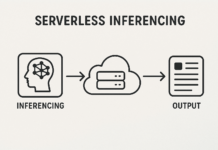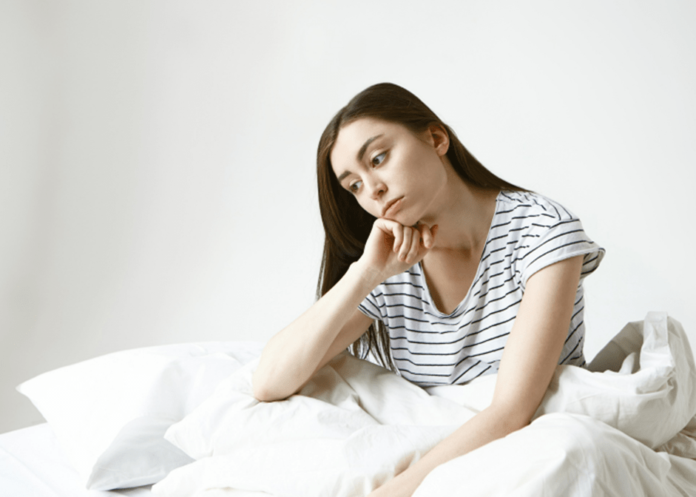Anxiety happens when a person views a situation or an event as posing a greater threat or stress than it normally would. Anxiety makes you feel pressured, worried, and even afraid. There is a link between sleep deprivation and anxiety. A good night’s sleep can make a person feel more energised and concentrated, as well as offer them a sense of overall well-being. Those who have trouble sleeping may experience anxiety.
Sleep and Anxiety
It’s unclear if anxiety causes sleep deprivation or sleep deprivation causes anxiety. Researchers, on the other hand, frequently see the two situations as intertwined and intimately linked. Anxiety and a lack of sleep are inextricably linked. Both can be treated with strategies that encourage better sleep and assist a person in changing their sleep mindset.
It’s no secret that getting enough sleep is essential for our overall health. However, while balancing our daily hectic schedule and mental chaos, the majority of us aren’t getting enough sleep. Anxiety is the body’s natural response to stress. Stress is the body’s natural response to external triggers. Sleep deprivation can worsen anxiety and have a negative impact on our cognitive health and our body’s ability to function.
Deep sleep, is a natural treatment for anxiety and a strong stress reliever. The studies found that when we’re sleep deprived, a portion of the brain called the medial prefrontal cortex is activated. This resulted in a 30% increase in anxiety levels among subjects. Anxiety levels, on the other hand, can decrease after a good night’s sleep. Deep sleep, according to the studies, restores the brain’s ability to control emotions and reduces emotional reactivity. Sleeping on a regular schedule and receiving at least eight to nine hours of sleep not only soothes and heals your body, but also controls your mood, enhances focus, consolidates memories, and sharpens your judgment. When you have a restful and evenly dispersed night’s sleep under your belt, you’re a better problem solver and more capable of dealing with daily challenges.
Other research has found that if we sleep less than eight hours per night, we are more likely to feel emotional, unmotivated, agitated, and anxious. Obesity and high blood pressure can both be exacerbated by a lack of sleep.
How do you naturally manage Anxiety to get a better night’s sleep?
Getting enough sleep keeps your hormones in check, which is necessary for managing Anxiety and worry.
However, it can be challenging to sleep well for those with Anxiety. Practicing a healthy sleep routine can help you with getting better sleep each night. To begin with, you should determine what is causing you to feel overwhelmed on a daily basis. Perhaps you’re working under stress or have too much on your plate. You can take action to lessen anxiety by identifying the stress.
For those who are having trouble sleeping, here are some natural ways to get better sleep and beat anxiety:
Avoid screen time before bed
It’s been recommended for a long time that you avoid screen time before bed since blue light from your devices can keep you awake at night. Put your phone on silent before sleeping as you don’t want to stimulate your brain and interrupt your production of melatonin. Try to avoid screen time an hour before bed.
Create a calming sleeping space
If you want to feel relaxed enough to sleep, having a bedroom where you feel safe and calm is a good place. You can try comfortable mattresses to enhance your sleeping experience. Sleeping on the right mattress can help you to improve sleep quality and allow you to wake up feeling refreshed and re-energized the next day. You can buy mattress online and unwind your day on the best mattress. Moreover, you can add soft, cozy, and comfortable pillows and comforters to create a relaxed calming sleeping space.
Avoid Caffeine
Caffeine should also be avoided four to six hours before bedtime, according to experts, because it can alter your natural sleep rhythm.
Journal before bed
This will help you to let go of your stress before bed. Journaling is known to reduce anxiety and help with sleep quality.
Consistent Sleep Space
You have to condition your brain to know that the bedroom means it’s time for sleep.
A relaxing Bed time routine
This will train your brain that it is time to unwind and shut off in time for sleep.
Meditation & Deep Breathing
A quick way to slow everything down which will help you fall asleep faster.
Daily Exercise
Daily exercise results in better quality sleep. The better the workout the better the sleep.
Avoid overeating
Having a full uncomfortable stomach won’t help you fall asleep.
If you can’t Sleep, Get up
Don’t lie tossing and turning. Get up for 10 minutes and do something unstimulating for example put away the dishes and get back into bed.
Author Bio:
Saloni Sharma is a Mumbai based writer specializing in wellness, health, and lifestyle niches. She has a professional background in marketing content writing. When she’s not writing about her favorite topics and poems she usually has her nose stuck in a good book.

























































